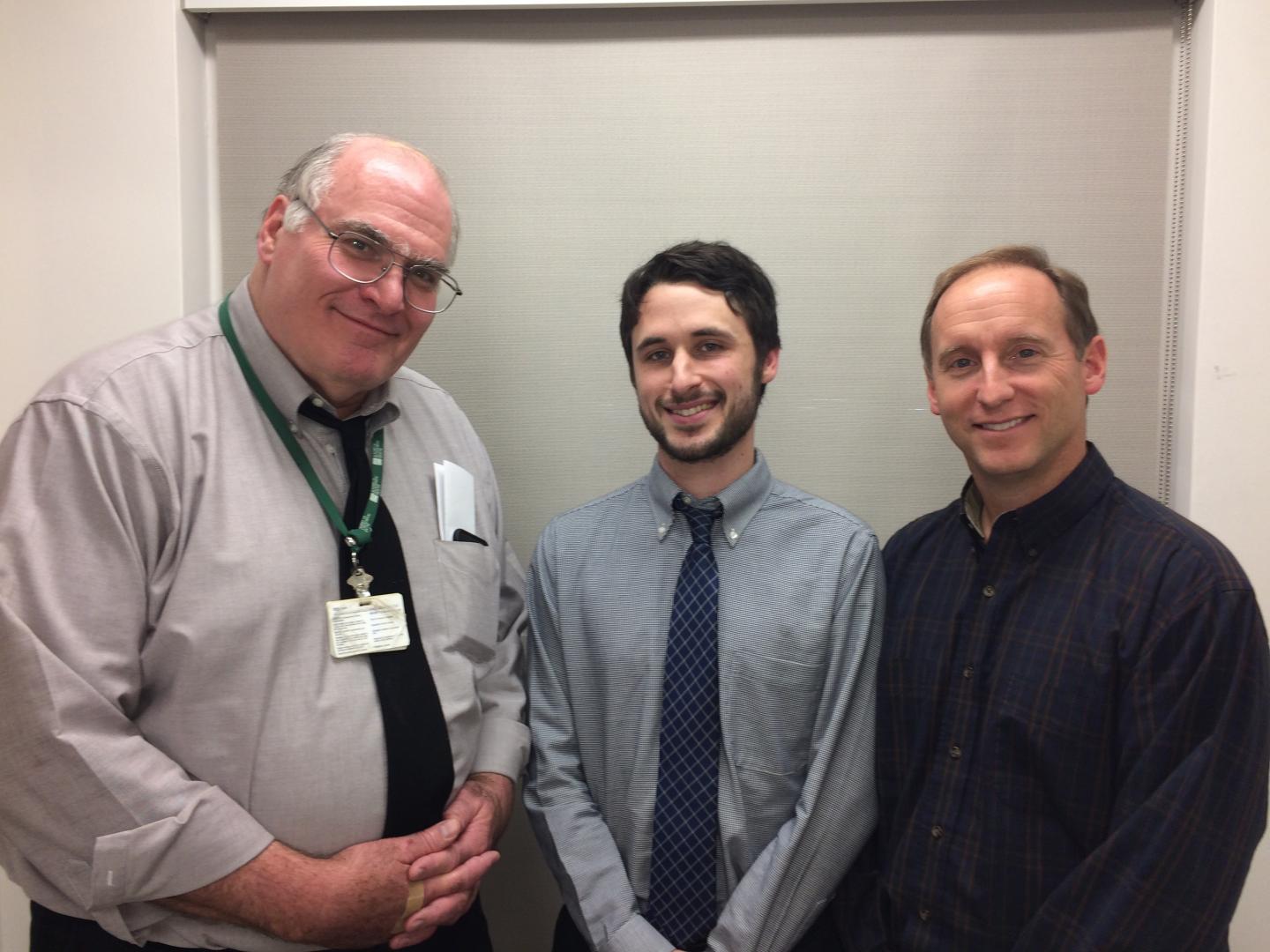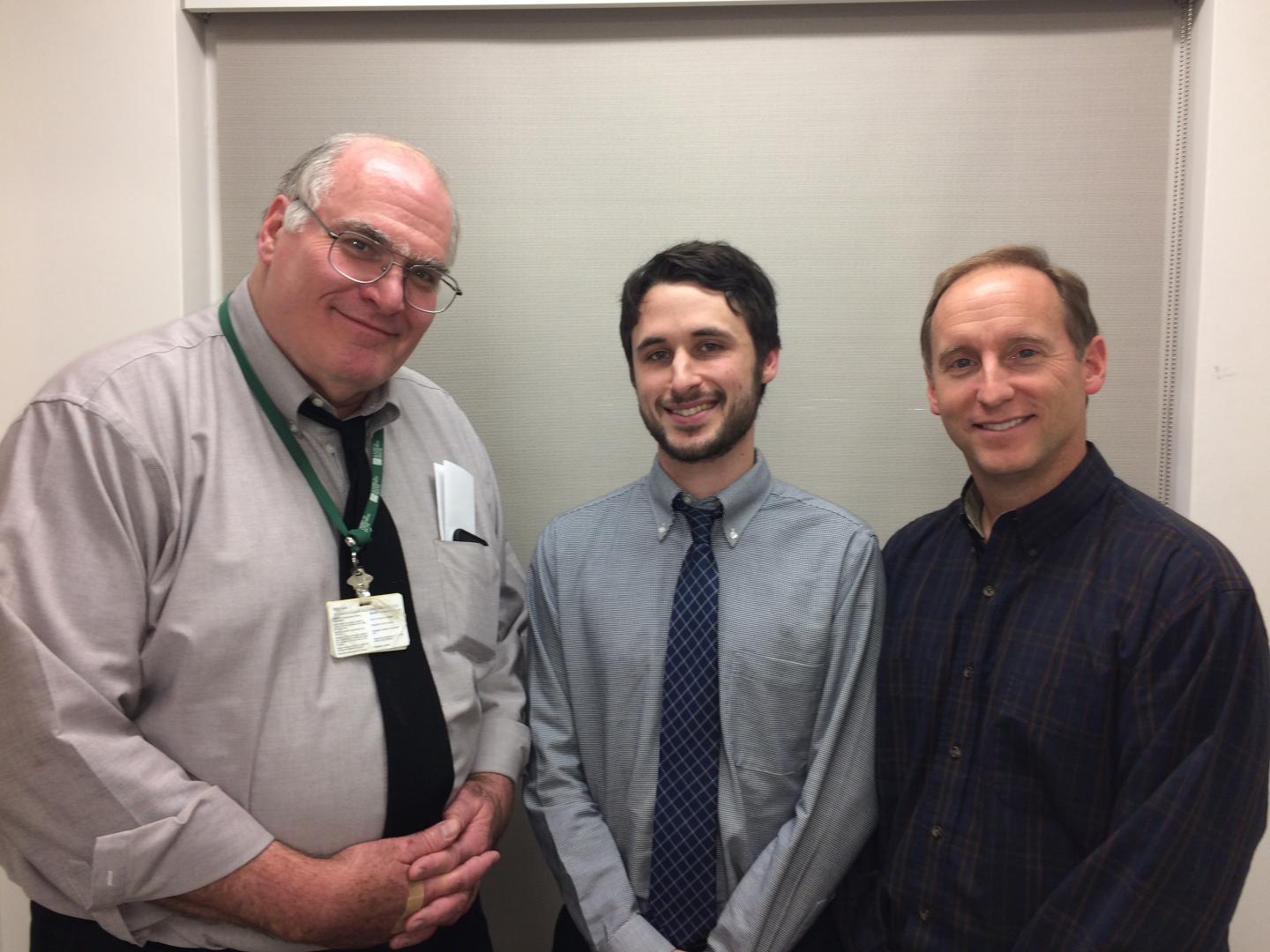
Credit: Wayne State University
DETROIT – On November 17, 2016, a Wayne State University doctoral student, Matthew Jasinski, will present results from his dissertation at the Annual Meeting of the American Society of Nephrology in Chicago. The study demonstrates the value of proactive identification of and family psychoeducation about cognitive impairment in patients with End-Stage Renal Disease or Chronic Kidney Disease (ESRD/CKD).
A team from Henry Ford Hospital led by Mark Ketterer, Ph.D., a clinical psychologist in the Department of Behavioral Health Services, collaborated with Jasinski, a Wayne State Department of Psychology graduate student, and Mark Lumley, Ph.D., professor of psychology at Wayne State, to conduct a clinical trial that sought to reduce the number of 30-day hospital readmissions by educating patients with ESRD and their family members about the patient's health needs.
According to Jasinski, patients with ESRD have the highest rates of being readmitted to the hospital of any chronic medical condition. "Many patients with ESRD are so ill that they keep ending up in the hospital over and over," said Jasinski. "Cognitive impairment, particularly memory problems, is common in these patients, but it is easy for medical teams to miss the warning signs when the patient is also suffering from an acute medical crisis. Then, patients are sent home, but may not follow through discharge plans, including adherence to medications and dialysis treatment, and often end up admitted to the hospital within 30 days of their discharge. Such early readmissions not only indicate poor health outcomes, but are also costly."
In the clinical trial, 120 hospitalized patients with ESRD were assessed for cognitive impairment and then randomly assigned to either a Family Psychoeducation Consultation or Treatment-as-usual (TAU) control condition. The consultation consisted of a brief meeting with both patient and family members to de-stigmatize the patient's illness and memory problems, educate the family about the patient's health needs, and discuss how to help the patient appropriately take medications and engage in other health care behaviors. A later review of patients' medical records found that the consultation reduced 30-day all-cause hospital readmissions to 18% of patients, compared to 32% of patients in the TAU condition. All 30-day unplanned return visits (including readmissions, ED visits, and hospital stay for observation) were reduced from 47% to 28%. Demographic and medical risk factors were not different across the two conditions.
"The randomized nature of this study gives us confidence that the consultation itself led to fewer early readmissions," reported Lumley. "Although we do not yet know how the consultation changed the patients' or family members' daily lives or interactions, we suspect that it led to better family support and medical adherence."
"This finding replicates and extends an earlier study in hospitalized patients with Congestive Heart Failure, and this trial makes a major contribution to improving both quality-of-care and reducing costs," said Ketterer. "By reducing the occurrence of medical crises causing hospital admissions, this intervention improves the 'value' of healthcare expenditures and reinforces the need for Integrative Behavioral Care in chronically medically ill patients."
CKD affects nearly 26 million American adults, with millions of others at risk for the disease. It is often caused by diabetes, high blood pressure and other disorders. CKD can progress to ESRD if not controlled. ESRD affects nearly 650,000 people in the United States and nearly two million people worldwide every year. Minorities and low-income patients are disproportionately affected with the disease with African Americans affected nearly 3.5 more times, Native Americans 1.5 more times and Hispanics 1.5 more times than other populations. The best treatment for ESRD is a kidney transplant; however there are over 100,000 ESRD patients on the transplant list, with less than 20,000 donor kidneys available in the United States. Those on the waiting list must follow a strict dialysis treatment and medication regimen until a donor kidney becomes available, and they face frequent hospitalization visits, in part, due to undiagnosed memory and attention problems.
###
About Wayne State University
Wayne State University is one of the nation's pre-eminent public research universities in an urban setting. Through its multidisciplinary approach to research and education, and its ongoing collaboration with government, industry and other institutions, the university seeks to enhance economic growth and improve the quality of life in the city of Detroit, state of Michigan and throughout the world. For more information about research at Wayne State University, visit research.wayne.edu.
About Henry Ford Health System
Henry Ford Hospital is the flagship hospital for Henry Ford Health System, one of the nation's leading comprehensive, integrated health systems, recognized for clinical excellence and innovation. The health system provides both health insurance and health care delivery, including acute, specialty, primary and preventive care services backed by excellence in research and education. The system is a 2011 Malcolm Baldrige National Quality Award recipient. Visit http://www.henryford.com to learn more.
Media Contact
Julie O'Connor
[email protected]
734-748-4207
http://www.research.wayne.edu/about/index.php





